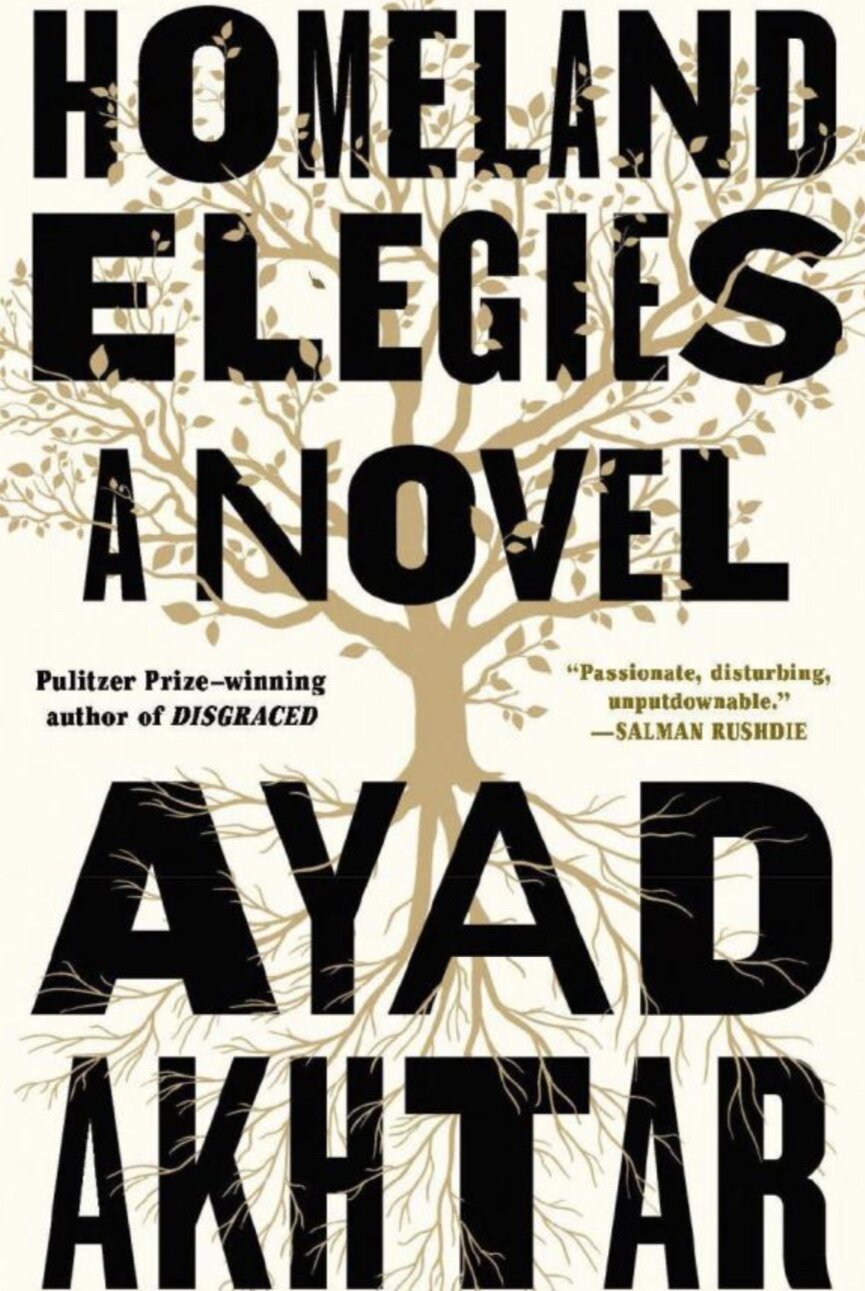Homeland Elegies: A Novel by Ayad Akhtar (Little, Brown and Company)
Is it a novel? Is it a memoir? Is it an economic explanation of the current political realm in the United States? Ayad Akhtar provides his own explanation in the subtitle of Homeland Elegies. It is, he proclaims at the outset, a novel. In a letter that prefaced the advance reader copies that were sent to booksellers and reviewers, he assures them “this is not a work of autobiography,” that his writing has the need to “deform actual events...in order to see them more clearly.” A quote from Alison Bechdel on the page that follows the dedication teases with “I can only make things up about things that have already happened…” And from the outset, readers begin to wonder what has already happened and what is made up.
Akhtar, as is true of his narrator, was born on Staten Island to parents who had recently arrived from Pakistan, grew up in Wisconsin, suffered the death of his mother, and won a Pulitzer Prize for his play, Disgraced. These facts, all given a new focus in Homeland Elegies, distract and detract from the American life of a man who has achieved the American Dream while his fellow-countrymen disregard the truth that he is American, often quite brutally.
His novel, if indeed it is one, is an epic saga that sweeps from Partition to 9/11 to the Age of Trump, from a childhood of privilege to an unexpected shower of wealth that comes his way during a stock market boom, of travels to visit relatives in Pakistan and ill-fated journeys in the United States. The narrator could easily be a successor of Huckleberry Finn, although one who is well-educated and born into Islam. But it’s the tease that weakens his story. When he steals a crucifix to wear around his neck after being assailed by a mob immediately after the Twin Towers fall, is this a skillful act of fiction or a confession? When he tells the love story that ends in his being given a case of syphilis, is this a form of satire or a mean way of settling a score with a woman who left him? Does it matter? Should it matter?
Underpinning this narrative from the first chapter to the last is an astute assessment of how American politics have intertwined, with disastrous results that are so woven into the country’s fabric that they may never be repaired. America is still a colony, the narrator is told by a university professor, but it is being colonized by the cult of the American self, with its need for all wishes to be immediately granted. This theory is expanded by different characters whom the narrator encounters throughout his life: the lesbian professor who points out that prevailing colonization and the exile we all face, at least economically; the Black Hollywood agent who explains how entrepreneurism was destroyed by the freebooting free-market deregulation of industry that led to the existence of Amazon and the cult of low prices at any cost; the Moslem financier who cynically turns consumer debt into a wealth-generating commodity and ultimately a weapon; the family friend who longs to return to Pakistan and excoriates American diversity by saying instead of the mythical melting pot, the nation is actually “a buffer solution, which keeps things together but always separated.” Trump, the Black agent explains, is simply “a human mirror,” reflecting the mood of Americans who longed to achieve the richness that surrounded and eluded them, a mood that “was Hobbesian--poor, nasty, brutish, and nihilistic.”
And yet this theory, as carefully constructed and as plausible as it appears, turns characters into mouthpieces and plot devices, as much as the detailed accounts of racism that scar the narrator feel like reconstructed journal entries. None of this ties together in a way that is an established literary form; it’s only Akhtar’s considerable talent that pulls this book into a whole. This could be what, in a more innocent time, would be called The Great American Novel. But it’s also dependent upon a form that will probably never be successfully replicated. The taunting elusive nature of hybrid work fails to be satisfying in the long run.~Janet Brown
